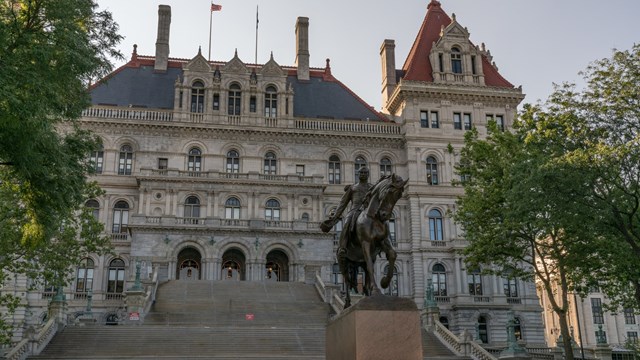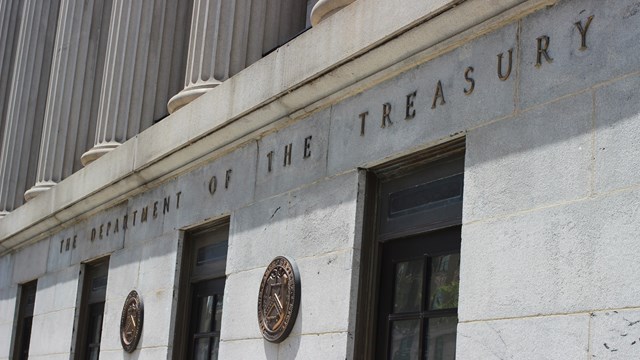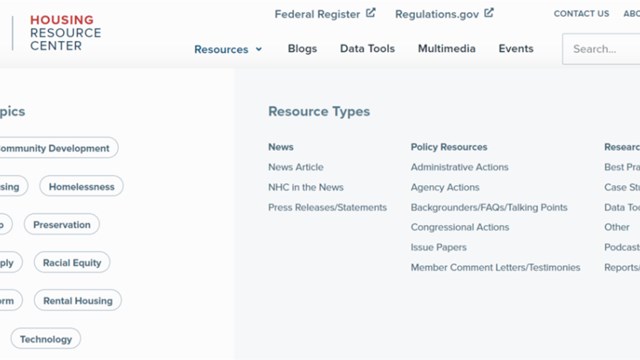As the nation starts to regain a semblance of normalcy with COVID-19 vaccinations on the rise and restrictions beginning to ease, legislative dockets have filled with bills and proposals that have ramifications for the co-op, condo, and HOA sector. Here are some of the biggies that boards, managers, and residents should be aware of.
HSTPA Corrections
Back in July 2019, New York legislators passed the Housing Stability and Tenant Protection Act (HSTPA), providing a range of protections to residential renters, and enacting certain limitations on landlords and other types of housing providers. But as with certain other legislation geared toward tenant protections, the language in the HSTPA “inadvertently” wraps co-op corporations in with “landlords” and co-op shareholders in with “renters,” since both categories of housing operate under a leasehold agreement—or so think proponents of Assembly Bill 350/Senate Bill 5105.
The difference is that rental tenants and landlords are two separate entities, whereas cooperatives are run by and for the mutual interest of their shareholder-occupants. As such, HSTPA has had undesirable effects on cooperatives throughout the state, prompting lawmakers to propose new legislation that would “correct” the inadvertent inclusion of co-ops. However, that new legislation got held up at the onset of COVID, leaving co-ops without the ability to, for example, hold more than a month’s worth of carrying charges in escrow, as a co-op board might propose for a prospective shareholder whose finances were on the margin, but who would otherwise be deemed a positive addition to the community.
The bill is currently in committee. Co-op lawyers and others throughout the state who live in, work with, or support co-ops are eager for it to be taken back up, with legal experts arguing that its passage would clear up a lot of unintended harm in an otherwise benevolent law.
Good Cause Eviction
Also in New York State, the Good-Cause Eviction Bill, as it is commonly known, is yet another example of tenant protection legislation that inadvertently includes co-ops—to their disadvantage.
This bill, A5573 in the Assembly, prohibits eviction or removal from a housing accommodation for anything other than good cause. Attorney Margery Weinstein of law firm Ganfer Shore and Chair of the New York City Bar Association’s Co-op and Condominium Law Committee explains that “‘Good cause’ is defined to include nuisance and illegal use and violations” but that “there’s a rebuttable presumption in this law, that the failure to pay rent is not good cause if it results from a rent increase of more than 3%, or one-and-a-half times the increase in consumer price index (CPI).”
As such, with passage of this bill co-ops would not be able to increase their maintenance charges more than 3% or one-and-a-half times the increase in CPI in a given year. “This effectively prohibits co-ops and condos from enforcing maintenance or common charge increases that are over these kept figures,” says Weinstein, “even if they have vastly increasing operating costs or tax increases or other obligations—such as all the carbon emission control rules that they have to now comply with.” The vast majority of co-ops do not have other means of raising funds to operate their properties, so without being able to adjust carrying charges to meet rising costs, many co-ops will be hard pressed to meet their expenses if this bill passes.
Weinstein adds that the bill also pertains to renewal leases and subleases, which might have consequences for individual condo owners who rent out their units. “You can’t recapture individual units, except for quote-unquote ‘good cause,’” she adds. “So let’s say you lease your unit out. You may not be able to take it back.”
In short, she says, “this bill could severely restrict the board in maintaining its building, and will prevent individual unit owners as well from renting their apartments on a short-term basis and getting those apartments back. So I think it has detrimental potential on multiple levels to affect the housing supply and the ways in which a co-op or a condominium currently operates.”
Reason for Rejection
Another swath of legislation getting a lot of attention in New York are Senate bills 1449, 2846, and 2874, which deal with boards disclosing a reason for rejecting a co-op or condo purchase applicant, and the timing for doing so. Weinstein says that these types of bills have reached the legislature every couple of years for the last decade or so, “and they usually just don’t go anywhere. … [but] this year, there are three of these bills in the Senate that seem to show some movement.”
With the ostensible purpose of providing transparency and eliminating the potential for discrimination, the bills would require boards of co-ops to provide a written explanation for their rejection of a prospective buyer, rather than the current leeway boards have to reject an applicant “for any reason, or for no reason.”
But Philip Simpson, an attorney with Robinson Brog, a firm also based in New York, points out that “New York City presently has the broadest scope of protection for groups of people against whom co-op boards might discriminate. If a prospective purchaser in a protected class is turned down and sues, the co-op board may well have to articulate a reason in response to the lawsuit.”
Aside from that apparent redundancy of the bill, boards have the fiduciary responsibility to protect the assets of their community and the investments of their individual shareholders. In fact, attorneys representing both co-op corporations and prospective shareholders advise that the most common reason for denial is the financial position of the applicant. Since cooperators in a housing corporation share financial responsibility for the operation and upkeep of the property, it is particularly important for incoming shareholders to be able to contribute proportionally now and for the foreseeable future. Similarly, Simpson also says that he has “seen denials, or issues raised, when the board views the purchase price as too low. A low purchase price will affect values throughout the building, because it will become a comparable sale the next time an apartment comes on the market, or someone wants to refinance their unit’s mortgage.”
One of these bills that Weinstein sees as particularly problematic says that if the board doesn’t act within a certain period of time, the board is deemed to have consented to the applicant. She points to the effect this would have on financing, questioning whether mortgage lenders would accept such tacit consent without seeing it in writing. Similarly for the issuance of a cooperative’s title insurance. “Yeah,” says Weinstein, “I think both title policies and lenders are going to want the affirmative consent. And the board might refuse to issue that affirmative consent. So then where are we?”
Construction Defect Claims
Matthew Gaines, attorney with Braintree, Massachusetts-based law firm Marcus, Errico, Emmer, and Brooks, P.C. and co-chair of the Community Associations Institute’s New England Chapter’s (CAI-NE’s) Legislative Action Committee, explains that January began the legislative session for Massachusetts’ two-year legislative cycle; all bills have been filed and referred to their respective committee, awaiting hearings that will take place in the upcoming year or so.
With respect to condominiums, he says, “One of the more interesting ones is House Bill 1501, ‘An act relative to construction defect claims by condominium owners,’”—a bill being proposed by CAI-NE’s Legislative Action Committee. Gaines explains that Massachusetts has a statute of limitations for defect claims against a developer, giving unit owners a certain number of years to sue for any construction problems. However, what ends up happening is that the statute of limitations expires either before completion of the project—especially if it is one that is phased out over many years—or before the developer has ceded control of the board, leaving no remedy for unit owners who suffer original construction defects.
“So this bill would kind of deal with that problem,” says Gaines, “and basically says that, for condominiums, the statute of limitations doesn’t even start to run until the developer does, in fact, turn over control [of the board] to the unit owners—that will hopefully enable unit owners, if there is a problem, to be able to recover something from the developer for that problem.”
Attorney David Ramsey of the Morristown, New Jersey office of law firm Becker & Poliakoff tells CooperatorNews that a similar bill is being proposed in the Garden State. Senate Bill 3649 would adjust the statute of limitations on damage claims for construction defects in a condominium, cooperative, or other planned community development to begin running at the time of the transition from developer control, instead of at substantial completion of the project.
Electric Vehicle Charging Stations
Another bill that has echoes in Massachusetts and New Jersey legislatures relates to electric vehicle charging stations. Massachusetts House Bill 3425, says Gaines, “says that a condominium may not prohibit or unreasonably restrict a unit owner from installing an electric vehicle charging station in his parking space.” Similar legislation has been passed in Boston, he says, but this law would apply statewide.
There is concern, however, that the practical application of this law would be problematic in many condominiums. Connecting any parking space to electricity regardless of its proximity to existing wiring is one issue. The infrastructure required to supply wiring to a certain spot, such as running a trench from the building envelope to the site of the parking space, might be cost-prohibitive. “And then,” Gaines points out, “one owner does it and then three months later another owner wants it, then you have to run the trench again.” So while the spirit of this bill is important, notes Gaines, “having a law that mandates that you can’t stop these [electronic charging stations] from coming in seems a bit harsh right now, at least initially until condominiums can sort it out themselves.”
Perhaps New Jersey’s A3367, which went into effect at the end of last year, addresses this issue more moderately. Ramsey explains that the law provides for “reasonable requirements” for the installation of electric vehicle charging stations by owners in common interest communities. Acknowledging that the demand, needs, and types of vehicles requiring electric charging will only expand, Ramsey notes that dealing with such provisions now is easier than playing catch-up down the road.
Kill Bill
In Nevada, a number of bills of concern to community and homeowners associations “died” before reaching Governor Steve Sisolak’s desk. This is good news for unit owners and boards who feared the financial ramifications of the proposed laws, suggests Barbara Holland, certified property manager and columnist for the Las Vegas Review-Journal. Among these are Senate Bill 144, which would have eliminated non-judicial foreclosure, required assessment increases to be approved by the state, and mandated that every homeowners association have a website that it maintains. Other killed bills include Assembly Bill 295, on the availability of records; Senate Bill 257, which would have eliminated the requirement that the association maintain property insurance for certain condos/townhomes; and Senate Bill 339, which would have allowed an HOA to lease abandoned properties.
Holland attributes the bills’ “deaths” to emails and calls from association constituents in the state. So keep contacting your local, state, and federal legislators to voice your support for or opposition to proposed legislation that affects you as a co-op shareholder, condo unit owner, or association homeowner! As laws related to co-ops, condos, and HOAs continue their way through legislatures and judiciaries, CooperatorNews will continue to keep you informed.
Darcey Gerstein is Associate Editor and Staff Writer for CooperatorNews.










Leave a Comment